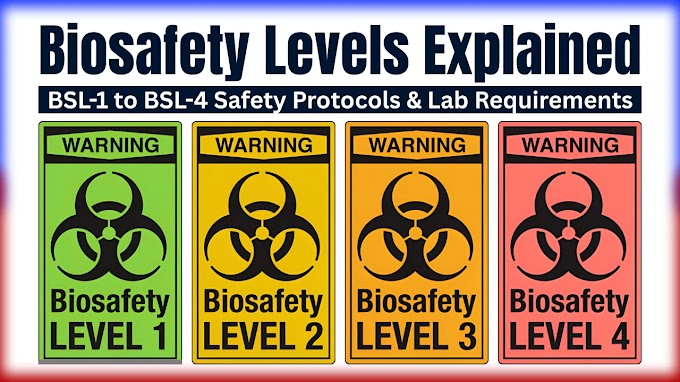Each everyone develops at their own rate. Psychologists disagree on what impacts personality the most, and they also disagree about how personality develops. Most people believe, however, that certain requirements must be satisfied in order for people to mature and remain mentally healthy.
Theories of Development
There are a variety of hypotheses or views regarding how personality develops. Abraham Maslow, an American psychologist, established one significant hypothesis. As seen in Figure 4-4, Maslow divided human needs into four categories. Human needs, according to Maslow, constitute a pyramid.
Lower, or more fundamental, wants must be addressed before higher needs may be met, as seen in this pyramid. Maslow, for example, felt that loving other people is difficult until fulfilling the desire to feel protected. What requirements must be satisfied before an individual may have a feeling of dignity, according to Maslow's pyramid?
Sigmund Freud, Jean Piaget, and Erik Erikson created three of the most well-known theories of personality development. All three men thought that personality development occurs in phases. These phases are most common between the ages of 4-6, as seen in Figure 4-6.
If a kid experiences difficulties at one stage of development, Freud felt that the issues will impact other phases of development. From infancy through the middle of puberty, Freud defined five phases. Children develop adult physical features during adolescence, which lasts from around the age of eleven to late adolescence.
When does identification with role models begin, according to Freud? While developing his own ideas of development, Swiss psychologist Jean Piaget was influenced by Sigmund Freud's work. Four phases of development were discovered by him. What distinguishes Piaget's phases from those of Sigmund Freud? Another researcher, Erik Erikson, a Danish-American psychologist, identified eight phases.
Erikson outlined the stages of development from infancy to maturity. What happens throughout the adolescent years, according to Erikson?
No single development theory is universally recognised. However, these views, along with those of other scientists, have contributed to a better understanding of how individuals develop and evolve.
Infancy
A person need love and compassion from the moment they are born. Studies have shown that newborns who are not hugged and soothed have trouble trusting people. Later in life, they may find it difficult to develop bonds with others. Babies who are stroked, spoken to, and cared for, on the other hand, can begin to develop trust. They begin to feel protected and learn that they can rely on others.
Rene Spitz, a psychologist, investigated two groups of youngsters. He compared newborns who had been raised by their mothers to those who had been raised in orphanages since birth. Spitz discovered that children who have been raised with their parents' love are more likely to be trustworthy and loving.
Children who grew up in institutions, on the other hand, were often less trusting and caring. This study, as well as others, has demonstrated that early love experiences aid in the development of self-confidence. Babies who are adored are more likely to grow up to be adults who can love others back. Erikson's Basic Trust or Mistrust Stage is at this point.
Babies quickly become aware of their surroundings. By sight and hearing, they learn to distinguish things and people. Colorful or moving items pique the curiosity of most newborns. They begin to desire to learn more about their surroundings and join in. Crawl, walk, and speak are all things they desire to do. Encouragement is critical for a child's well-being, even at this young age. This increases a child's desire to study.
Childhood
During early infancy, the individuals who care for the kid have a significant effect. At the same time, the kid develops a desire to be self-sufficient. During childhood, children acquire self-confidence, a drive to succeed, and a sense of self. The development of these qualities is influenced by the child's surroundings.
By successfully completing new tasks, children acquire a sense of accomplishment. Puzzles, assisting at home, and learning to read are examples of these activities. Self-control is also crucial. The ability to control one's activities is known as self-control. Self-control is required to learn not to take a beloved toy from a playmate, for example. Children are more likely to feel they can get along with others if adults emphasise self-control.
Children begin the process of gender identification in early infancy. Gender identity is defined as having a sense of self that corresponds to your gender. It is the recognition of oneself as a girl or a guy. Parents are often the primary role models for gender identification. Girls are more inclined to imitate their moms, whereas males are more likely to imitate their fathers. Girls and boys will likely develop the manners and conduct of members of their own sex in their community later in life. Figure 4-6 depicts Freud's Socialization Stage.
It is critical for children's mental health to identify with their gender. It is also beneficial for youngsters to have options that prevent them from being stereotyped due to their gender. Stereotyping is the assumption that all members of a big group have the same fixed features.
Stereotyping may take various forms, including sex, ethnicity, and physical features. The three phrases that follow are examples of stereotyping that can impair a child's development.
Cooking is something that boys despise. Children in Japan are extremely bright. Sports are difficult for nearsighted youngsters.
Adolescence
You may experience mood fluctuations as an adolescent. You may feel on top of the world at times. You can feel furious, lonely, or depressed for no apparent cause one minute and then be happy the next. This is partially due to the fact that your body changes as you get older. But it's also because you're attempting to become self-sufficient.
You want to learn how to make your own judgments and set your own standards. Most teens ask themselves three crucial questions throughout this era of growth.
"Who am I?" you might wonder. Many of your thoughts and sentiments as a youngster were probably unquestioned.
You may lose sight of who you are during adolescence. If you were a cheerful go lucky kid in elementary school but now find yourself more serious as a teenager, you may question whether version of yourself is the real you. This inquisitiveness is a normal response to the search for one's own identity. Your identity refers to the distinct aspects of your personality that allow you to be identified. Who you are is your identity.
Attempting to completely comprehend and express oneself may be both frightening and thrilling. You can feel like a stranger to yourself at times. You may also feel cut off from people and things you used to love. Adolescents frequently search for new role models outside of their own families.
New ideas and challenges are frequently offered by friends, instructors, and others. It becomes increasingly vital to be a part of a group of individuals your own age. You might like to hang out with others who share your interests. Teenagers frequently dress in similar styles, speak in similar languages, and listen to similar music. A group of people who are alike in one or more ways usually in age and interests-is called a peer group.
Figure 4 - 8 Peer influence becomes more important as teenagers seek social activities away from family.
You will feel better about yourself if you have a safe identification. Someone who has a strong sense of self can interact with a wide range of individuals without feeling uncomfortable. You can say no to things that make you uncomfortable without feeling angry or ashamed if you have a stable identity. People who have a strong sense of self may be close to others without feeling as if they are losing their individuality.
Figure 4 - 9 Obtaining a driver's license is one sign of independence that is important to many teenagers.
"How do I know what I believe?" The search for firm values is the subject of this question. Values are ideas and ideals that you hold dear to your heart. The inquiry also considers the role of your conscience in your behaviour.
The portion of you that distinguishes between good and bad is your conscience. You probably accepted what your parents taught you as a youngster. However, as a teen, you may be curious in the reasons for your parents' beliefs and regulations. You're becoming more conscious of the many values held by others, and you're beginning to question about your own genuine views. Figure 4-6 depicts Piaget's Formal Operational Stage, which addresses this problem.
You may have doubts about ideas about such broad topics as politics and social problems. But you're probably also thinking about what makes a good friend, the value of honesty or hard effort, and how to satisfy your own desires without harming others. Your adult personality will most likely be a blend of ideals you learned as a child and those you embrace during adolescence.
"How am I going to get there?" Adolescence appears to be a transitional stage in life. You most likely grew up in a very structured atmosphere. You may have lined up and marched to lunch as a class as a youngster. You were primarily reliant on others to assist you with difficulties. However, as a teenager, you are beginning to push past previous boundaries. You want to know what it's like to be able to make your own decisions. However, you may find it difficult.
You'll be attempting to find a style of living that fits your personality as an adolescent. You'll start to set objectives for the type of work and family life you want to have. All of this, however, does not happen overnight. You were primarily reliant on others to assist you with difficulties. However, as a teenager, you are beginning to push past previous boundaries. You want to know what it's like to be able to make your own decisions. However, you may find it difficult.
Young Adulthood
You will become legally independent in your twenties and thirties. You will take responsibility for your acts and yourself. You may go to college or a vocational school. You will find work and be self-sufficient. This generally entails moving out of your parents' house and into your own.
During this period, professional success and marriage are common ambitions. Many individuals anticipate having children at this time. Young adults have attained a certain level of emotional maturity. The term "maturity" refers to the state of being completely developed. People that are mature have a good understanding of themselves and may form strong bonds with others.
They are capable of making responsible judgments and comprehending the consequences of their actions. Others find the twenties and thirties to be a perplexing period. Some young adults may be hesitant to marry. They may have difficulty finding a career that they enjoy. These individuals may require further investigation before coming to a clear knowledge of themselves and their desired lifestyle.
Some young adults face much greater difficulties. Their development may be delayed if early life events left them with little or no self-respect. It's difficult to develop intimate bonds with people if you don't respect yourself. It is difficult for people to acquire a sense of accomplishment from their job if they do not believe they are as worthy as they believe others are.
If a young adult lacks self-respect, he or she may become self-centered and isolated from others. Figure 4-6 illustrates the Intimacy or Isolation Stage. It takes a strong belief in oneself to be able to take responsibility for your actions.]
Middle Adulthood
Middle adulthood, which often occurs between the ages of forty and sixty-five or seventy, provides both new pleasures and new concerns. A sense of accomplishment can come from performing well at work. The urge to serve the community at this stage of life is described by Erikson's Generativity or Stagnation Stage.
As your obligations grow, this might be a financially stressful period. For example, people may be attempting to pay for their children's college educations.
In many cases, middle age is a period of reflection on one's life objectives. You'll have a greater knowledge of yourself as well as the world around you. You'll be able to see what's doable and what's not.
This information must be weighed against your previous aspirations and goals. Based on what you've learned, you may need to adjust your objectives and plans for the future.
Taking on a new experience, even if it is challenging, may be extremely gratifying. Changes frequently bring with them fascinating new challenges and motivation.
Late Adulthood
The knowledge that life does not continue on forever may become a source of concern in later years, generally after the age of sixty-five or seventy. This may be a tough period for some, especially those who believe that some of their previous aspirations did not come true. Many people, however, feel that their latter years are fulfilling.
People who have learnt that life is full of both joy and sorrow are more inclined to enjoy the present and fondly remember the past. The main issues of late may be seen. Figure 4-6 depicts maturity as seen by Erikson in his Integrity or Despair Stage.
Late adulthood may also be a time of fresh opportunities, connections, and passions. In reality, many young individuals believe that elderly people are less busy than they are. Many are organisational leaders who continue to be influential to others. Some people continue to work after they have reached retirement age. Others work as consultants or on specific projects.
As people become older, they may get involved in community affairs or volunteer groups. It's also nice to have the option of following other hobbies. These new and good pursuits might provide a lot of pleasure. Even in old age, people may continue to study, enjoy busy lives, and contribute to society.
Figure 4-12 Healthy living increases the chances of enjoying an active and long life with the people you know.
Lesson Review
Psychologists and other sciences have made significant contributions to our knowledge of personality. This research has demonstrated how humans mature and grow in stages. Each level introduces new problems and questions. Individuals must meet specific demands at each stage in order to develop and maintain a healthy personality.
















